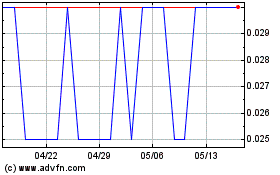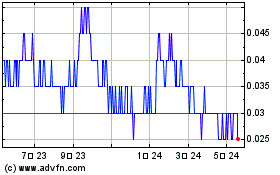AZINCOURT ENERGY CORP. (“Azincourt” or the
“Company”)
(TSX.V: AAZ, OTCQB: AZURF), is pleased
to announce that the sample analysis has finally been received from
the 2023 exploration program at the East Preston uranium project in
the Athabasca Basin, Saskatchewan, Canada.
Drilling for the 2023 program at the East
Preston Project consisted of a total of 3,066 meters completed in
13 drill holes between February and March 2023.
Drilling was focused on the G, K, H, and Q zones (Figure 3) with
results reported in a news release dated March 28th,
2023.
Winter 2023 Diamond Drilling Program
Highlights
A total of 687 samples were collected throughout
the program and sent to the Geoanalytical Laboratory at the
Saskatchewan Research Council in Saskatoon, Saskatchewan for
analysis. As was reported in a news release dated July 11, 2023,
there was a delay with the analytical results. After a review of
the initial data received from the lab, there were significant
quality control issues noted within the results. As part of the
quality control process, standards with a known concentration of
uranium are inserted in the sample batches. These samples are
analyzed to confirm that the results for that batch of samples are
within an acceptable range based on the results of the standards.
The issues noticed manifested as anomalous results occurring in the
samples analyzed immediately following several of the standards. As
a result, these samples were reanalyzed. Once the issue was
identified, confirmed, and resolved, the company requested that all
samples of the affected batches be run through the process to
ensure a complete consistent data set.
Analysis of the results shows uranium enrichment
within the previously identified clay alteration zones along the K,
and H- target zones. Uranium enrichment is identified as uranium
(U) values and a uranium/thorium ratio (U/Th) above what would
normally be expected in the given rock type or area.
Drilling on the northeast trending G-Zone
(Figure 2) identified extensive hydrothermal alteration and
evidence of east-west cross-cutting structures along the southern
portion of the zone. The primary rock types in the alteration zone
are granodiorite and diorite gneiss with average expected values of
2-3 ppm U and U/Th ratios of 0.25-0.3. Elevated radioactivity was
intersected in EP0045 and EP0047 and EP0047 returned elevated U and
U/Th values. While this is a good sign, the alteration zone does
not display the upgraded clay alteration halo seen at Zones K and
H.
Illite and kaolinite are both indicators of
hydrothermal alteration typically found within alteration halos of
unconformity uranium deposits. Dravite is a boron-rich clay which
is typically found within a larger clay package in close proximity
to uranium mineralization in the system. Both illite and dravite
have been identified as being significant vectors for the recent
Patterson Lake North discovery by F3 Uranium approximately 60 km to
the northwest of the East Preston project.
On the north end of the K-Zone (Figure 2),
drilling intersected extensive structure and hydrothermal clay
alteration within the structural zone. Samples of clay alteration
were analyzed by Short Wavelength Infrared Reflectance (SWIR,
sometimes referred to as “PIMA”) to confirm the clay species. All
three holes contained illite and kaolinite clay species, with
EP0049 also having dravite identified within the structural zone.
EP0049 also returned elevated Thorium.
The H-Zone covers a change in orientation of the
structural and conductive trend from north south to southwest
trending (Figure 2). Drilling intersected an intense graphitic
fault zone with hydrothermal alteration. The Illite clay alteration
halo identified in the K-Zone extends south into the H Zone as far
south as EP0053. Hole EP0053 intersected elevated radioactivity and
both kaolinite and dravite are also present within the illite
alteration package. Dravite was also identified in hole EP0052.
Rocks in this zone are expected to return values of 0.5-1.5 ppm U
and U/Th ratios of 0.25-0.5. Holes EP0052 and EP0056 returned the
best analytical results of the program with U/Th ratios of 1.0 and
1.8 respectively, and uranium in the 5-6 ppm range.
The company considers the drilling results to
date to be significant, as major uranium discoveries in the
Athabasca Basin such as McArthur River, Key Lake, and Millennium
were primarily the result of drill testing of strong alteration
zones related to conductor features. Identifying and upgrading the
strong alteration zones is a significant step forward in
identifying the key areas along the conductor trends where more
attention is required.
“The alteration we are seeing in the K and H
Zones is very encouraging” said VP, Exploration, Trevor Perkins.
“The associated elevated uranium present is also very promising and
shows that we are vectoring towards something in this area. The
identification of dravite and illite clays with the elevated
uranium emphasizes that we are on the right track and getting
close. This target area will be a top priority moving forward and
based on results we may see the north-northwest trending structures
taking on more significance for targeting on this trend and others
on the property,” continued Mr. Perkins.
“We’re encouraged by the appropriate clay
content in the alteration zones. If you’re hunting for a uranium
deposit, this is what you need to see,” said CEO, Alex Klenman.
“The elevated uranium values from the last two drill programs,
combined with the confirmed presence of relevant clays and strong
U/Th ratios, within these systems, are substantial developments in
the progression of the project and should not be underestimated.
Although we’d certainly welcome encountering significant
mineralization we continue to be well within a practical discovery
timeline. We are eager to continue moving the project forward and
will begin formulating the next phase of drilling at East Preston.
In the meantime, we’re active at the Big Hill lithium project in
Newfoundland and are awaiting results of the current work program.
A follow up program is in the planning stage and will be announced
shortly,” continued Mr. Klenman.
East Preston Targets
The primary target area on the East Preston
Project is the conductive corridors from the A-Zone through to the
G-Zone (A-G Trend) and the K-Zone through to the H and Q-Zones
(K-H-Q Trend) (Figure 2). The selection of these trends is based on
a compilation of results from the 2018 through 2020 ground-based EM
and gravity surveys, property wide VTEM and magnetic surveys, and
the 2019 through 2022 drill programs, the 2020 HLEM survey
indicates multiple prospective conductors and structural complexity
along these corridors.
Drilling has confirmed that identified
geophysical conductors comprise structurally disrupted zones that
are host to accumulations of graphite, sulphides, and carbonates.
Hydrothermal alteration, anomalous radioactivity, and elevated
uranium have been demonstrated to exist within these structurally
disrupted conductor zones.
Permitting and Community
Engagement
The permitting process is underway for the
2024-2026 drill programs. Azincourt Energy continues to be engaged
in regular meetings with the Clearwater River Dene Nation and other
rights holders to ensure that concerns of the local communities are
addressed with regards to the East Preston project. A more in-depth
engagement process will also be commencing within the next couple
of months with the La Loche Metis Local #39. Azincourt looks
forward to a continued close working relationship with CRDN and
other rights holders to ensure that any potential impacts and
concerns are addressed and that the communities can benefit from
activities in the area through support of local business,
employment opportunities, and sponsorship of select community
programs and initiatives. Local businesses are engaged to provide
services and supplies and members of the Clearwater River Dene
Nation and surrounding communities have been directly employed on
site or to provide support and services to keep the camp and
programs running.
Figure 1: East Preston Project Location – Western
Athabasca Basin, Saskatchewan, Canada
Figure 2: 2023 Target areas and Drill Hole
Locations at the East Preston Uranium Project with the area of
dravite and kaolinite clay alteration highlighted in red.
About East Preston
Azincourt controls a majority 78.4% interest in
the 25,000+ hectare East Preston project as part of a joint venture
agreement with Skyharbour Resources (TSX.V: SYH), and Dixie Gold.
Three prospective conductive, low magnetic signature corridors have
been discovered on the property. The three distinct corridors have
a total strike length of over 25 km, each with multiple EM
conductor trends identified. Ground prospecting and sampling work
completed to date has identified outcrop, soil, biogeochemical and
radon anomalies, which are key pathfinder elements for unconformity
uranium deposit discovery.
The East Preston Project has multiple long
linear conductors with flexural changes in orientation and offset
breaks in the vicinity of interpreted fault lineaments – classic
targets for basement-hosted unconformity uranium deposits. These
are not just simple basement conductors; they are clearly
upgraded/enhanced prospectively targets because of the structural
complexity.
The targets are basement-hosted unconformity
related uranium deposits similar to NexGen’s Arrow deposit and
Cameco’s Eagle Point mine. East Preston is near the southern edge
of the western Athabasca Basin, where targets are in a near surface
environment without Athabasca sandstone cover – therefore they are
relatively shallow targets but can have great depth extent when
discovered. The project ground is located along a parallel
conductive trend between the PLS-Arrow trend and Cameco’s
Centennial deposit (Virgin River-Dufferin Lake trend).
Qualified Person
The technical information in this news release
has been prepared in accordance with the Canadian regulatory
requirements set out in National Instrument 43-101 and reviewed on
behalf of the company by C. Trevor Perkins, P.Geo., Vice President,
Exploration of Azincourt Energy, and a Qualified Person as defined
by National Instrument 43-101.
About Azincourt Energy
Corp.
Azincourt is a Canadian-based resource company
specializing in the strategic acquisition, exploration, and
development of alternative energy/fuel projects, including uranium,
lithium, and other critical clean energy elements. The Company is
currently active at its joint venture East Preston uranium project
located in the Athabasca Basin, Saskatchewan, and the Big Hill
lithium project, located in southwestern Newfoundland.
ON BEHALF OF THE BOARD OF AZINCOURT
ENERGY CORP.
“Alex Klenman”Alex Klenman, President
& CEO
Neither the TSX Venture Exchange nor its
regulation services provider (as that term is defined in the
policies of the TSX Venture Exchange) accepts responsibility for
the adequacy or accuracy of this release.
This press release includes “forward-looking
statements”, including forecasts, estimates, expectations and
objectives for future operations that are subject to a number of
assumptions, risks and uncertainties, many of which are beyond the
control of Azincourt. Investors are cautioned that any such
statements are not guarantees of future performance and that actual
results or developments may differ materially from those projected
in the forward-looking statements. Such forward-looking
information represents management’s best judgment based on
information currently available. No forward-looking statement
can be guaranteed, and actual future results may vary
materially.
For further information please
contact:
Alex Klenman, President & CEOTel:
604-638-8063info@azincourtenergy.com
Azincourt Energy Corp.1430 – 800 West Pender
StreetVancouver, BC V6C
2V6www.azincourtenergy.com
Photos accompanying this announcement are available
at:https://www.globenewswire.com/NewsRoom/AttachmentNg/f79513dc-cacf-418e-b66a-aa95fcea8558https://www.globenewswire.com/NewsRoom/AttachmentNg/089022c6-2612-4b8b-9b49-95b95c6cfc6c
Azincourt Energy (TSXV:AAZ)
過去 株価チャート
から 12 2024 まで 1 2025

Azincourt Energy (TSXV:AAZ)
過去 株価チャート
から 1 2024 まで 1 2025
